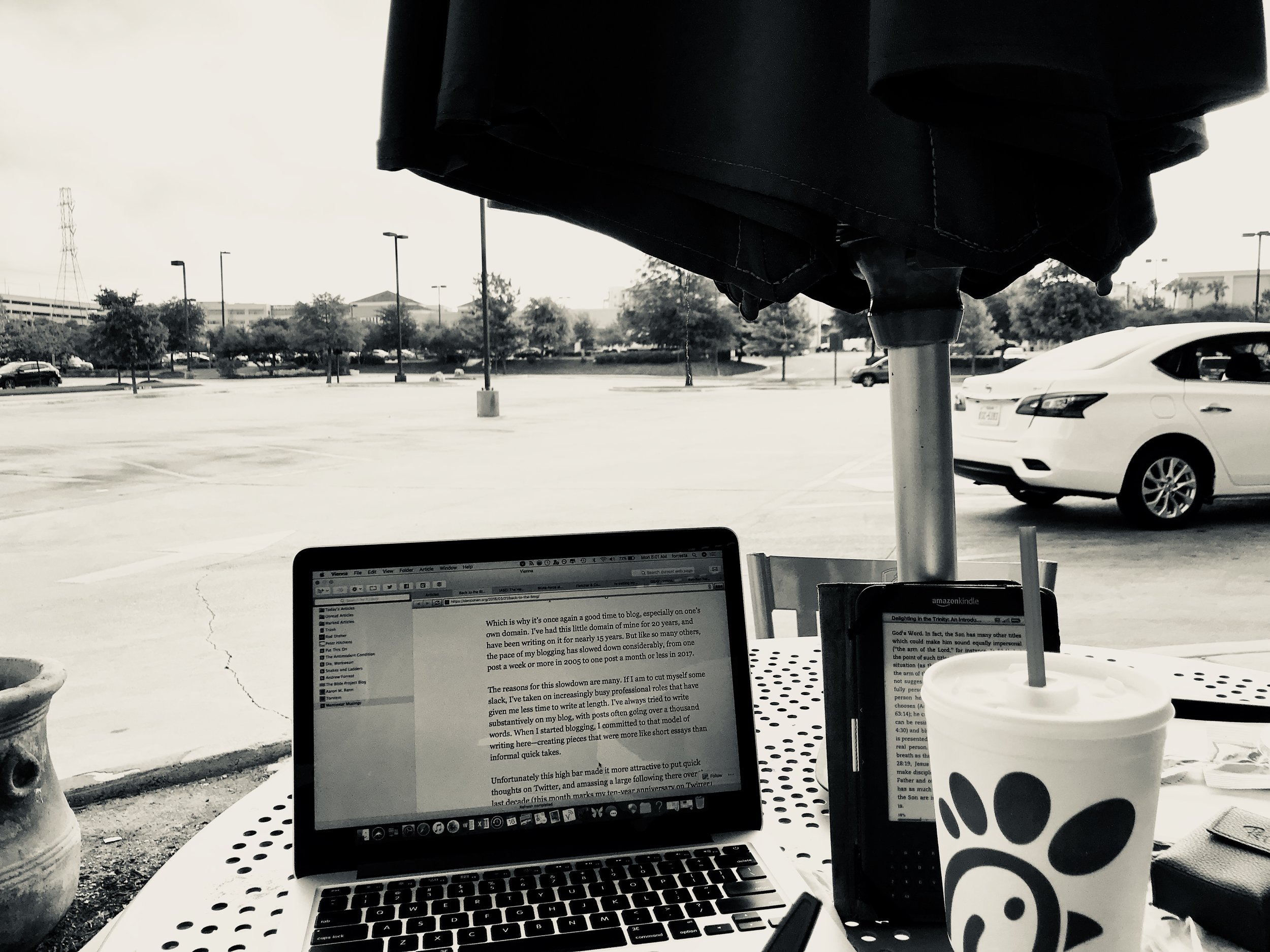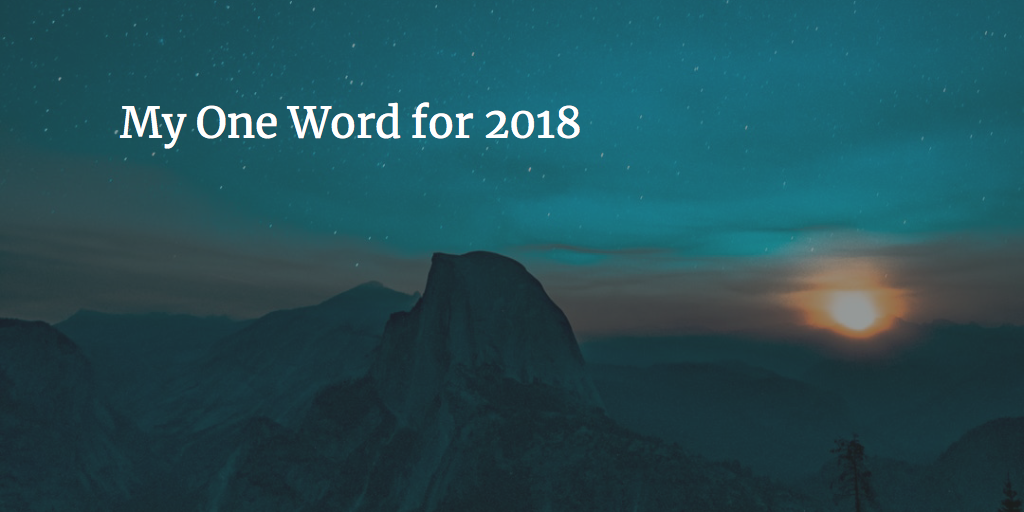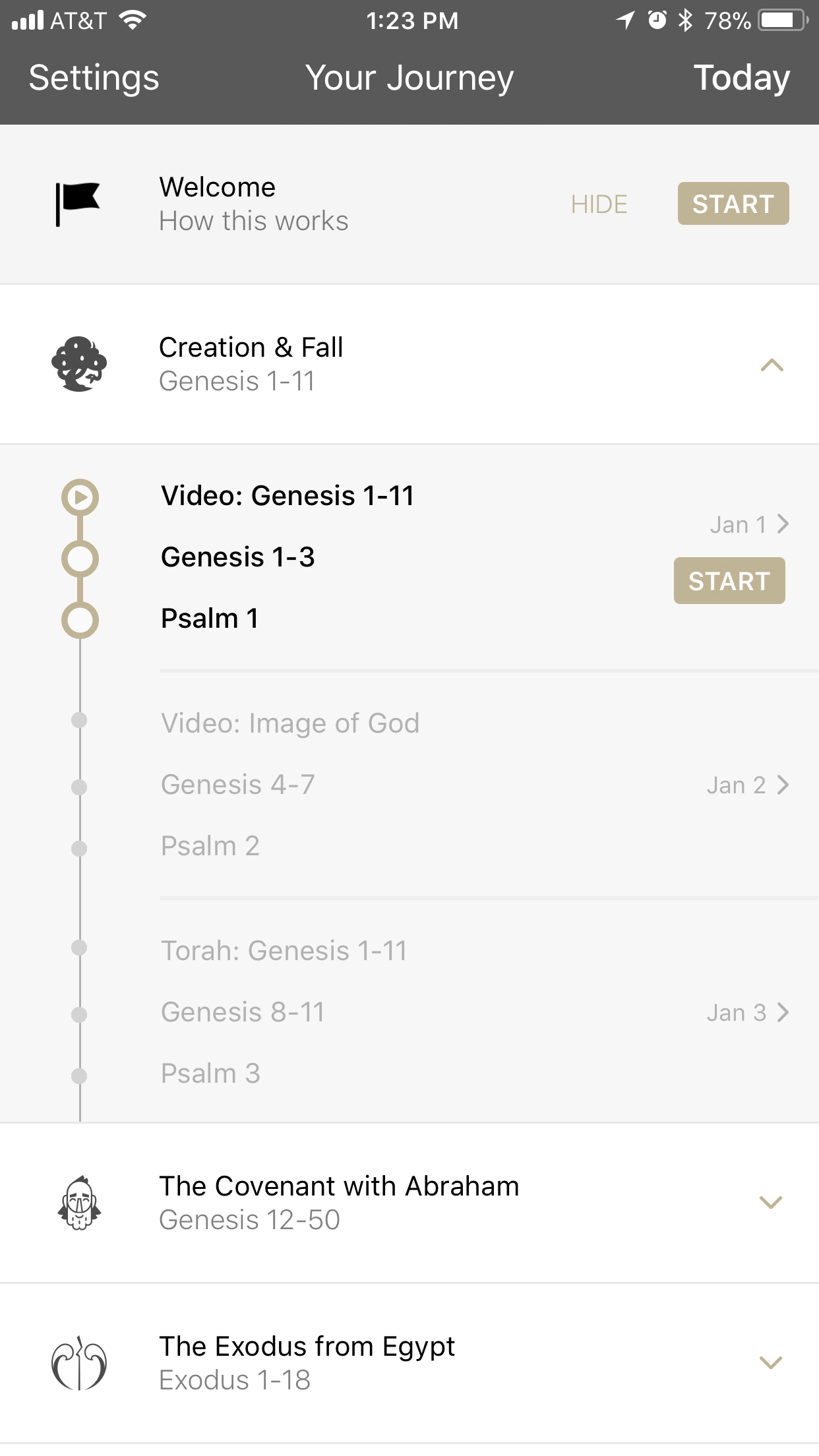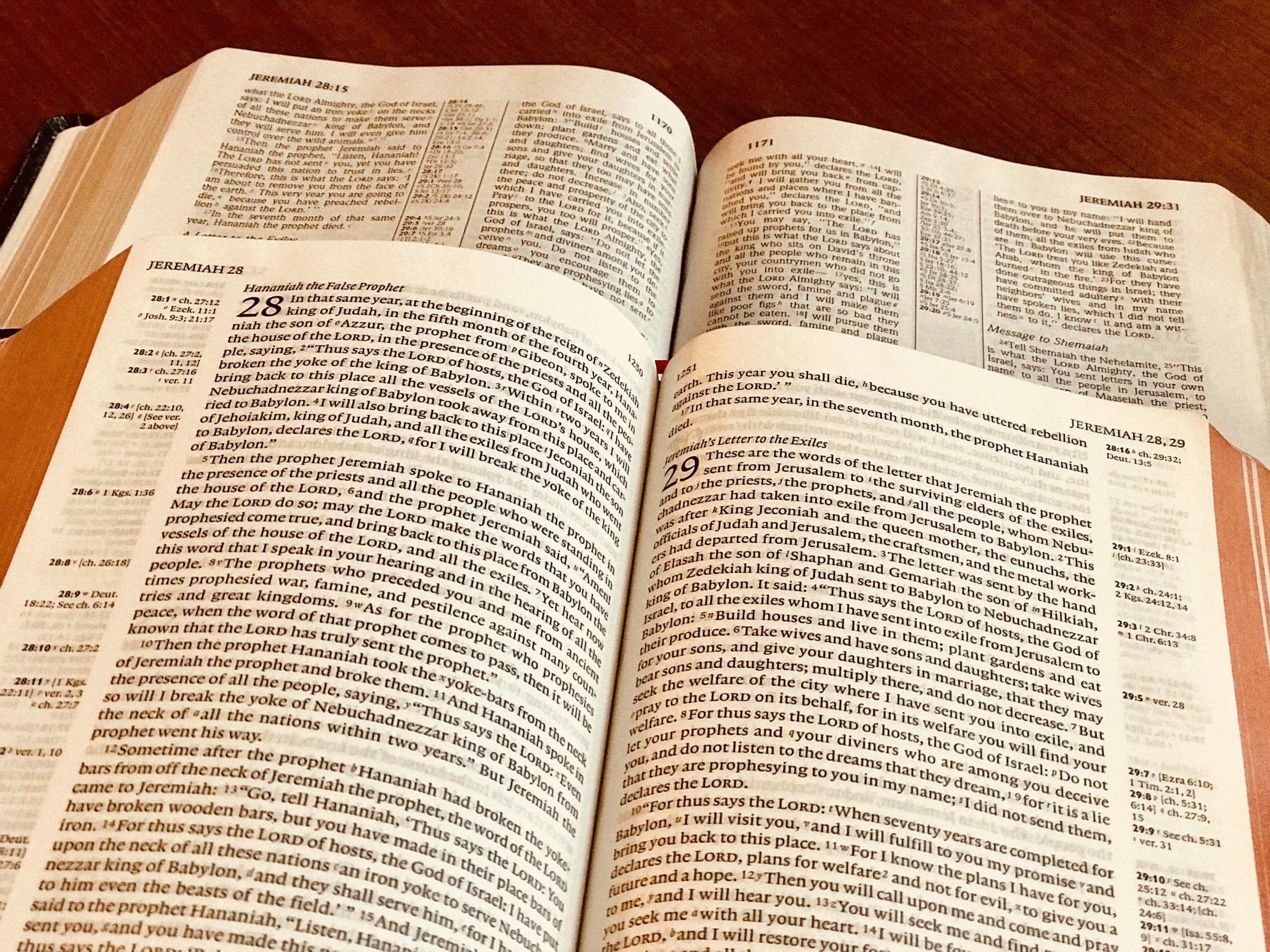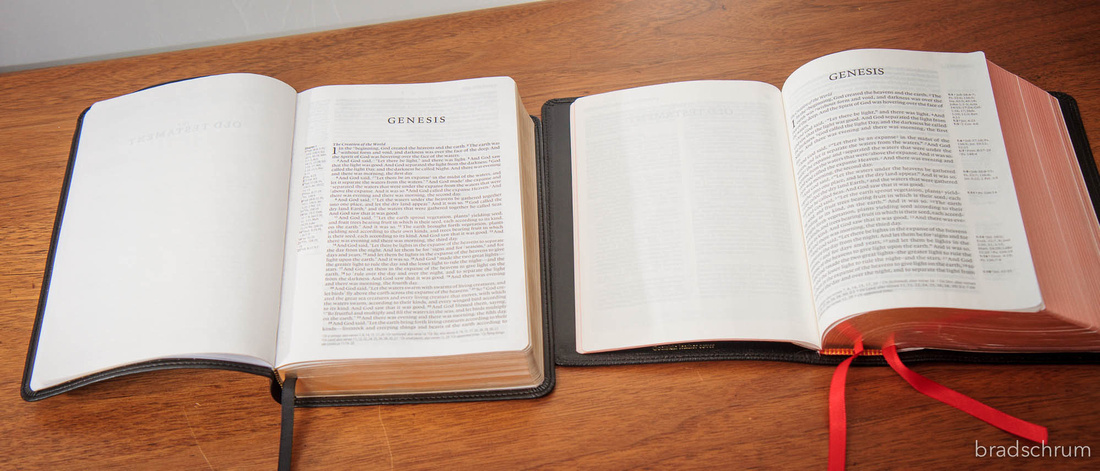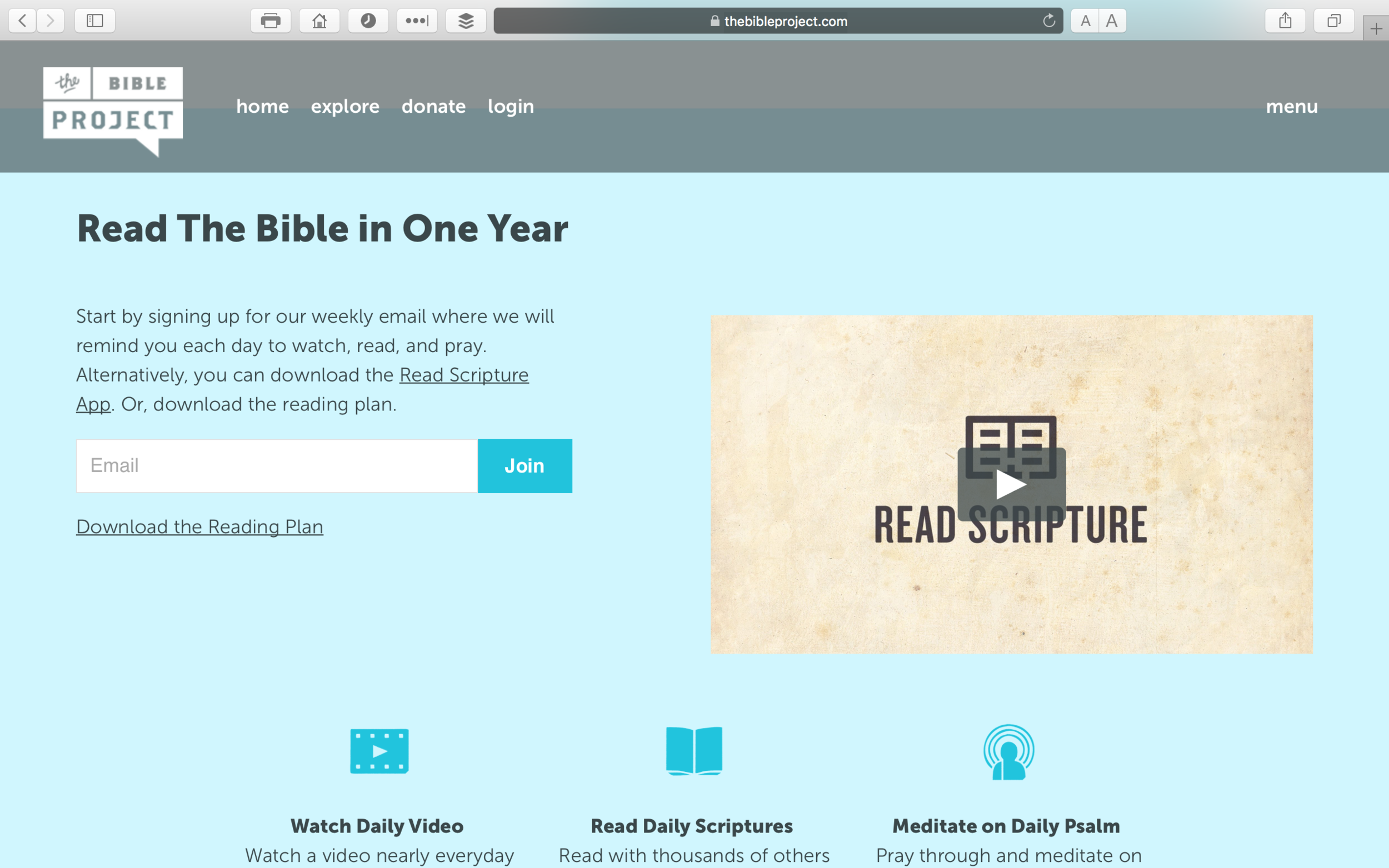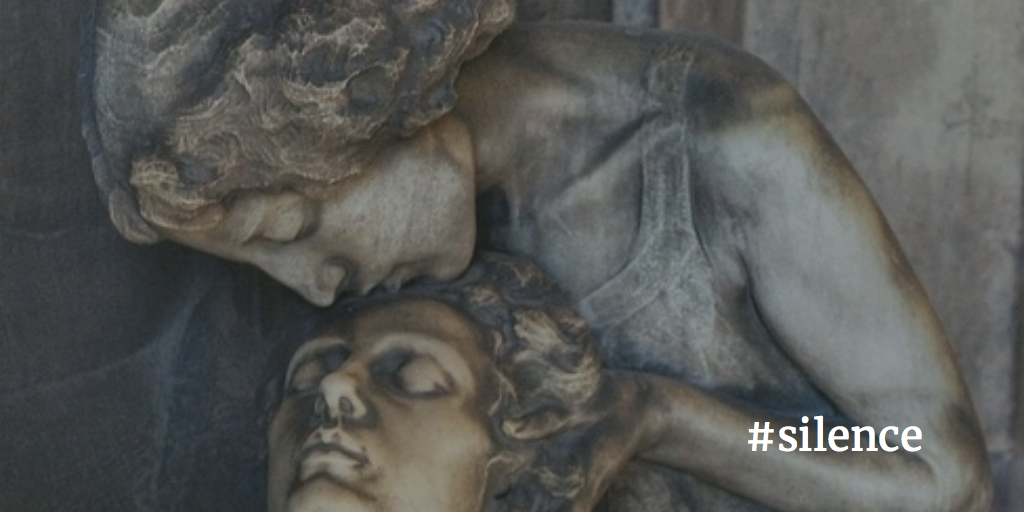All things seem possible in the early morning.
Nature's first green is gold
I love early morning, that time that seems like night until you look up and see that the sky is no longer black but has become that deep, rich blue color that only occurs there, then.I expect that was the color of Eden's firmament, early Adam's first morning.In the early morning, waking up and, for a brief moment, forgetting everything that you know except that it's a new day, that's the best time.After that, of course, remembering rushes in like water through a sluice-gate, and the day tumbles over itself. That moment doesn't return.But for that brief time, it's golden.
Early mornings are like a drop hanging on the end of a dropper, before it drips: all about potential, unrealized. And that's why I love them.
I wonder if Jesus loved early mornings for that reason, too. Before the Pharisees poked their fingers in his chest and asked him to justify himself, before he heard about the tragedy of the Tower of Siloam or how Pilate had profaned the sacrifice with the blood of those Galileans he'd killed, before John's disciples breathlessly told him about Herod's homocidal boasting before the dancing girl, I wonder: did Jesus savor those first few sinless minutes, before each day fell?
Very early in the morning, while it was still dark, Jesus got up, left the house and went off to a solitary place, where he prayed. (Mark 1:35)
Nothing gold can stay, though, can it?I memorized Robert Frost's little poem "Nothing Gold Can Stay" twenty years ago or so, and I've always thought he says it well:
Nothing Gold Can Stay
Nature‘s first green is gold,Her hardest hue to hold.Her early leaf‘s a flower;But only so an hour.Then leaf subsides to leaf.So Eden sank to grief,So dawn goes down to day.Nothing gold can stay.
Dawn, which began pregnant with potential, always goes down to day, and day always comes with disappointment at best and disaster at worst.
Hopkins knew this: that in time, everything becomes ruined:
And all is seared with trade; bleared, smeared with toil;
??? And wears man's smudge and shares man's smell: the soil
Is bare now, nor can foot feel, being shod.
I love early mornings, but early mornings are like light itself: you can't hold on to them. Mornings turn into days.And I don't need to tell you that days are difficult.
Days are difficult because that's how we make them--our dirty fingerprints are everywhere.Every morning is like Eden's first morning: pristine. But no day remains like that. Days comes with difficulty.
Yet days don't last either, do they? Days would have us believe that they are interminable, but we know by now that days irreversibly become evenings, and evenings inevitably become nights.And every night is followed by a new morning.
I think that's what I love most about mornings, how there is always another one coming. Regardless of how heavy and ugly was the day, at least we know that a new morning is on its way.Whoever it was who wrote Lamentations knew this about mornings:
The steadfast love of the Lord never ceases;his mercies never come to an end;they are new every morning.
? --Lamentations 3:22-23
C. S. Lewis says
in his little book on the Psalms that Psalm 19 contains some of the finest poetry, not just in the entire Bible, but in all the world's literature. Here's how the Psalm opens:
The heavens declare the glory of God;And the firmament shows His handiwork.Day unto day utters speech,And night unto night reveals knowledge.There is no speech nor languageWhere their voice is not heard.Their line has gone out through all the earth,And their words to the end of the world.In them He has set a tabernacle for the sun,Which is like a bridegroom coming out of his chamber,And rejoices like a strong man to run its race.Its rising is from one end of heaven,And its circuit to the other end;And there is nothing hidden from its heat.--Psalm 19:1-6
It's a perfect image: the sun like a groom emerging from his tent on the morning of his wedding day, or like a runner who delights?in the very act of running itself. (One thinks of Usain Bolt, effortlessly striding down the Olympic track.)And it happens every morning.
So maybe God delights in mornings, too. Maybe the reason there's always another morning is because God himself can't wait to see another one. At least,
that's what Chesterton thought:
The thing I mean can be seen, for instance, in children, when they find some game or joke that they specially enjoy. A child kicks his legs rhythmically through excess, not absence, of life. Because children have abounding vitality, because they are in spirit fierce and free, therefore they want things repeated and unchanged. They always say, "Do it again"; and the grown-up person does it again until he is nearly dead. For grown-up people are not strong enough to exult in monotony. But perhaps God is strong enough to exult in monotony.
It is possible that God says every morning, "Do it again" to the sun; and every evening, "Do it again" to the moon. It may not be automatic necessity that makes all daisies alike; it may be that God makes every daisy separately, but has never got tired of making them. It may be that He has the eternal appetite of infancy; for we have sinned and grown old, and our Father is younger than we. The repetition in Nature may not be a mere recurrence; it may be a theatrical encore.
? --G.K. Chesterton,?Orthodoxy
The ultimate morning, I guess, has to be Easter. It can't be a coincidence that the Resurrection happened "very early in the morning, while it was still dark." Of course the Spirit
could have raised Jesus any time of the day or night, but here's what I think:Easter
morning was?
deliberate.
So, mornings to me are about the hope that God has a plan for me and for the world. Yes, days are difficult, but every morning is another promise that the Lord has something up his sleeve each new day. Yes, things are a mess, but God's not through with us yet.Hopkins, whom I quoted earlier, has perhaps my favorite description of mornings ever (it's at the end):
God's Grandeur
The world is charged with the grandeur of God.
??? It will flame out, like shining from shook foil;
??? It gathers to a greatness, like the ooze of oil
Crushed. Why do men then now not reck his rod?
Generations have trod, have trod, have trod;
??? And all is seared with trade; bleared, smeared with toil;
??? And wears man's smudge and shares man's smell: the soil
Is bare now, nor can foot feel, being shod.
And for all this, nature is never spent;
??? There lives the dearest freshness deep down things;
And though the last lights off the black West went
??? Oh, morning, at the brown brink eastward, springs
Because the Holy Ghost over the bent
??? World broods with warm breast and with ah! bright wings.
"The dearest freshness deep down things." Yes, and each morning brings out that latent possibility. Here's that last part again:
And though the last lights off the black West went
??? Oh, morning, at the brown brink eastward, springs
Because the Holy Ghost over the bent
??? World broods with warm breast and with ah! bright wings.
Yes. EXACTLY.
My one word for 2018 is?
morning.
I'd love to have you sign up to receive my newsletter. If you don't like it, you can always unsubscribe, right?


